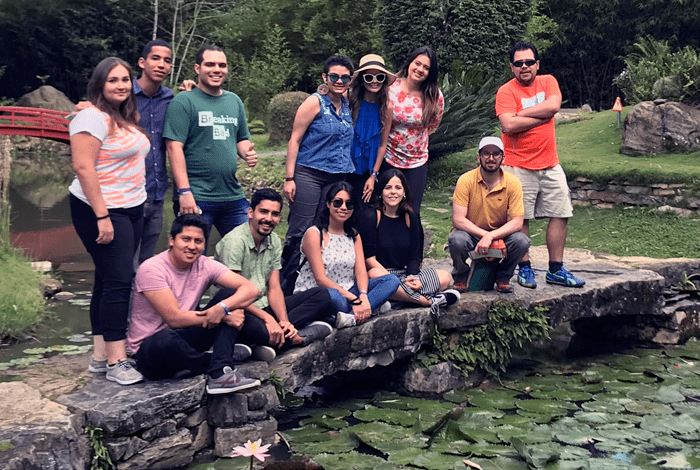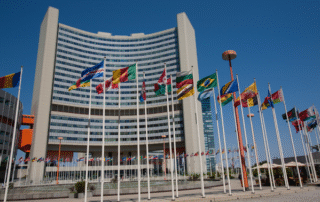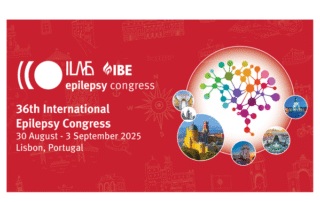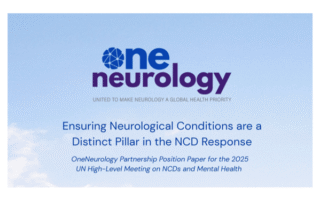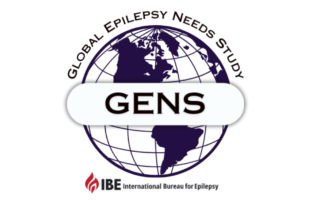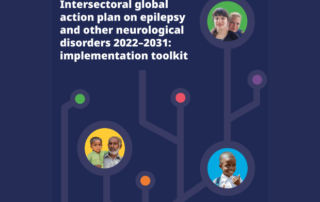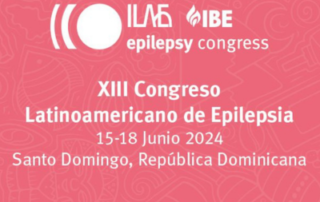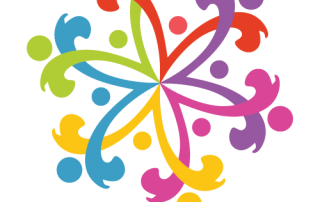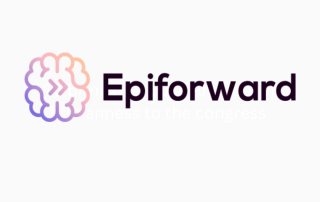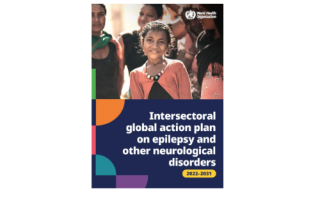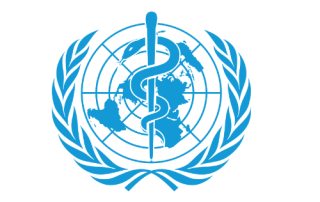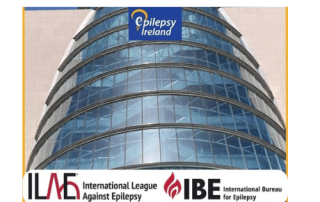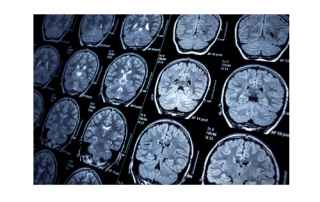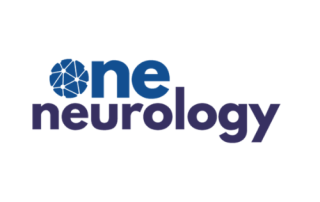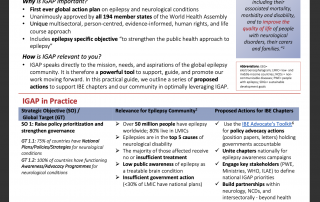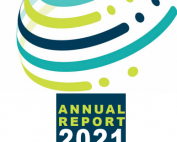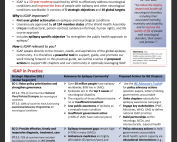UNGA80: Securing a Global Commitment on NCDs and Mental Health
The UN will convene their High-Level Meeting on Noncommunicable Diseases (HLM4) on 25 September in New York, where Heads of State and Government will set a new vision to prevent and control NCDs towards 2030 and 2050. The outcome—a political declaration to be decided during [...]
Amplifying the Voices of Lived Experience: Citizen Journalists at IEC2025
The countdown has begun for the 36th International Epilepsy Congress (IEC2025), which will take place 30 August – 3 September 2025, in Lisbon, Portugal. Following the success of our first initiative in 2023, this year’s congress will once again feature citizen journalists—an innovative addition that [...]
IBE at the 36th International Epilepsy Congress
With the 36th International Epilepsy Congress (IEC) approaching in Lisbon at the end of August, excitement is building across the IBE community. Co-organised by the IBE and the International League Against Epilepsy (ILAE), the Congress brings together the worlds of science, advocacy, and lived experience. [...]
Francesca Sofia Reappointed as IBE President for a Second Term
We are pleased to announce that Francesca Sofia has been reappointed as President of the International Bureau for Epilepsy (IBE), beginning her second term following recent constitutional reforms that allow for consecutive [...]
Shaping the Future of Epilepsy Advocacy in Asia and Oceania
In February 2025, New Delhi hosted the 15th Asian and Oceanian Epilepsy Congress (AOEC) which brought together leaders, advocates, and researchers from across the region. Alongside the main scientific programme, the International Bureau for Epilepsy (IBE) hosted a powerful and thought-provoking Epilepsy and Society Symposium—a [...]
Putting Epilepsy on the Global Health Agenda
The IBE welcomes the release of a new position paper from the OneNeurology Partnership—co-chaired by IBE CEO Donna Walsh—calling on UN Member States to formally recognise neurological conditions as a distinct pillar in the global response to non-communicable diseases (NCDs). Published ahead of September’s Fourth [...]
IBE Webinar: Developmental and Epileptic Encephalopathies – Now and Next
IBE is pleased to invite you to attend a one-hour zoom webinar on Developmental and Epileptic Encephalopathies: Now and Next. This webinar is aimed at DEE families and advocates, but also IBE chapters and other stakeholders who want to learn more about advances in the [...]
Global Youth Regional Workshops – Express Your Interest Now!
The International Bureau for Epilepsy's Global Youth Team is excited to announce a series of seven virtual workshops taking place this Autumn, specifically designed for young people aged 18-35 with epilepsy. The purpose of the workshops will be to explore the emerging themes of the [...]
Global Epilepsy Needs Survey: Your Voice Matters!
The International Bureau for Epilepsy's (IBE) Global Epilepsy Needs Survey (GENS) is your chance to speak up and make a real difference. After a successful launch across 15 countries, GENS is now open to everyone with epilepsy (18+) and their caregivers worldwide. This is your opportunity [...]
IBE Europe Chapters to Gather in Rome
Dear friends, We are incredibly excited about the upcoming IBE Europe Chapters Convention, taking place on September 12th and 13th in the beautiful city of Rome. This gathering holds immense importance as a chance for representatives from across Europe to connect, collaborate, and shape the [...]
Launch of the Advocate’s Toolkit to Make Epilepsy a Priority in the Americas
Next Thursday, September 5, 2024, the official launch of the "Advocate's Toolkit to Make Epilepsy a Priority in the Americas" will take place during a special webinar event. This important resource has been co-developed by the International Bureau for Epilepsy (IBE) and the Pan American Health [...]
WHO Launches Implementation Toolkit for IGAP
WHO has today published a new implementation toolkit for the Intersectoral global action plan on epilepsy and other neurological disorders (IGAP), outlining specific actions and resources for countries to improve services for people with neurological disorders in preparation for meeting IGAP’s targets for 2031. Neurological conditions [...]
IBE Events and Activities at LAEC 2024
The International Bureau for Epilepsy (IBE) is planning some exciting activities at the 13th Latin American Epilepsy Congress in collaboration with ILAE, which takes place from 15th to 18th June 2024 in Santo Domingo, Dominican Republic. We’re very excited about the upcoming Latin American Epilepsy [...]
What Matters To Young People With Epilepsy? Insights From the Global Youth Summit 2023 Report
The International Bureau for Epilepsy (IBE), in collaboration with Epilepsy Ireland, Young Epilepsy (UK), and Epilepsy Connections (Scotland, UK), brought 27 young people with epilepsy together in Dublin, Ireland, for a Global Youth Summit as part of the 35th International Epilepsy Congress. The summit took [...]
ILAE-IBE Joint Statement on International Epilepsy Day 2024
Today, on International Epilepsy Day, the International League Against Epilepsy (ILAE) and the International Bureau for Epilepsy (IBE) are calling for accelerated implementation of the Intersectoral Global Action Plan on Epilepsy and other Neurological Disorders. This plan, or IGAP, developed by the World Health [...]
New African Language Translations of IGAP
Epilepsy South Africa recently announced a significant milestone in its commitment to inclusivity and accessibility. Thanks to the dedicated efforts of the Epilepsy South Africa team, branches, and IGAP Champions, the organization released translated versions of the Intersectoral Global Action Plan (IGAP) booklet in Sesotho, [...]
IBE hosts EpilepsyPOWER consortium meeting
IBE, via Epilepsy Alliance Europe [EAE], hosted the latest meeting of the EpilepsyPOWER project in Dublin, Ireland. Taking place from October 31 to November 1st, 2023, the consortium met to discuss the creation of 14 learning modules that will target both people with epilepsy, and [...]
Reflections on 35th International Epilepsy Congress
The curtains may have closed on the 35th International Congress (IEC), but the echoes of the event continue to resonate with us. We want to share with you some of the highlights from this unforgettable event. New Hashtag Created: To amplify the voices of lived [...]
How to Transform IGAP into Action for People with Epilepsy [Webinar English & Spanish]
It gives us great pleasure to share this IGAP Online Webinar (Spanish and English) which took place on 12 September, organised by FUNDHEMI, FEDE, LICHE, and the IBE to celebrate Latin American Epilepsy Week. The discussion centered on the following topics: What is the WHO Intersectoral [...]
Bringing The Voice of Lived Experience To #IEC2023
Epilepsy isn't just a medical condition; it's a journey that profoundly impacts individuals and their families. Having an understanding of the medical aspects of epilepsy is crucial, but understanding the emotional, psychological, and social aspects is just as important. A key focus of this year’s [...]
Historic Regional Symposium Unites Epilepsy Community in South East Asia to Prioritize Public Health and Implement WHO’s IGAP
The International Bureau of Epilepsy (IBE), in partnership with the Indian Epilepsy Association (IEA) and Indian Epilepsy Society (IES) convened a historic regional multi-stakeholder symposium “Epilepsy and Society in the Era of IGAP” in Jaipur, India, on 22-23 July 2023. With the overarching goal to [...]
WHO Publishes Intersectoral Global Action Plan on Epilepsy and Other Neurological Disorders in All Six UN Languages
The World Health Organization (WHO) has published the Intersectoral global action plan on epilepsy and other neurological disorders (IGAP) in all six UN languages. In May 2022, WHO Member States adopted the IGAP which aims to improve access to treatment and care and quality of life [...]
WHO Approves Inclusion of Levetiracetam in the Essential Medicine List
We are pleased to inform you that the WHO Committee on Essential Medicines has given its approval for the addition of oral levetiracetam for the treatment of focal-onset and generalized-onset seizures in its Model List of Essential Medicines (EML) and Essential Medicine for Children (EMLc). Parenteral [...]
International Bureau for Epilepsy selects Golden Light Award Winners 2023
June 29th, 2023 - At a webinar to celebrate young people with epilepsy - in advance of International Youth Day 2023 - IBE announces its bi-annual, global Golden Light Award winners. Three inspiring young people - from Brazil, Tanzania and Ireland - were selected to [...]
Public Sessions at 35th IEC – Attend In-Person or Virtually
The 35th International Epilepsy Congress is Coming to Ireland! Mark your calendars for this September, as Ireland welcomes the 35th International Epilepsy Congress (IEC). Organized biennially by the International League Against Epilepsy (ILAE) and International Bureau for Epilepsy (IBE), this prestigious event stands as the [...]
Where Are We After One Year of IGAP?
We were pleased to join our colleagues International League Against Epilepsy and the World Federation Of Neurology for a recent webinar celebrating one year since the Intersectoral Global Action Plan on Epilepsy and Other Neurological Disorders (IGAP) was unanimously approved by World Health Organization Member [...]
Join the International Bureau for Epilepsy For A Celebration of Young People with Epilepsy
Living with epilepsy as a young person can be challenging, but you don't have to face it alone. IBE, along with our Global Youth Team, is pleased to announce an upcoming event scheduled for July 29th. This event offers a platform where you can [...]
Why is Epilepsy Different for Women? [Webinar Replay]
Being a woman with epilepsy is not the same as being a man with epilepsy. This is especially noticeable when a woman reaches childbearing age and becomes sexually active. Seizures can be influenced by the female hormones of oestrogen and progesterone, resulting in issues for [...]
NEW REPORT: Exploring Epilepsy and the Family
Exploring Epilepsy and the Family A Report from the Global Youth Team of the International Bureau for Epilepsy [IBE] on International Day of Families 2023. For young people with epilepsy, the role of family is crucial to support their development and allow them to reach [...]
VIRTUAL EVENT: Women and Epilepsy
The world of sexual development, menstruation, contraception, fertility, pregnancy and menopause is complex, but when you have epilepsy, there are extra issues you need to know about. Unfortunately, being a woman with epilepsy is not the same as being a man with epilepsy. On [...]
Participants Needed for Clinical Trial on Focal Epilepsy
Have you, or a family member, been diagnosed with focal epilepsy which is not currently fully controlled by medication? Are you based in the United States or Israel, and between the ages of 18 to 65? If so, you may wish to consider enrolling [...]
Launch of IBE E-Learning Modules
Today, on World Health Day, we are delighted to announce the launch of our new e-Learning module series. World Health Day (WHD), held every year on 7 April, marks the anniversary of the founding of the World Health Organization (WHO) in 1948, so it is [...]
Congratulations 2023 Award Winners
On behalf of the International League Against Epilepsy (ILAE) and the International Bureau for Epilepsy (IBE), it gives us great pleasure to announce the winners of the Lifetime Achievement Awards, the Social Accomplishment Award and the Ambassador for Epilepsy Awards 2023. All of the award [...]
IBE Joins OneNeurology Partnership
We are delighted to announce that the International Bureau for Epilepsy (IBE) has joined the OneNeurology Partnership. This exciting partnership brings together leading organizations in the field of neurology to work towards a common goal of improving the lives of people with neurological conditions. The Partnership, [...]
IGAP Unpacked
IBE is delighted to share with you our latest publication, entitled "IGAP Unpacked". Following last year's milestone adoption of the WHO Intersectoral Global Action Plan on Epilepsy and Other Neurological Disorders (IGAP) and subsequent consultations with all our regions and chapters, this [...]
IBE-Africa Chapter Convention: Advancing Epilepsy Advocacy in Africa: From Policy to People
15th-17th May 2025 Lusaka, Zambia Download Report
IBE Epilepsy and Society Symposium at AOEC
February 2025, New Delhi Download Report
Established in 1961, the International Bureau for Epilepsy (IBE) is an international organisation for national epilepsy organisations (IBE chapters) that exists to provide support for a strong global network, encourage the development of new chapters in underserved areas of the world, and to encourage communication and collaboration among all members so as to meet our mission and vision.
Our members are patient/family focused and driven organisations and we work collaboratively with our professional and government partners worldwide.
Our strategic priorities are to ensure that epilepsy is
recognised as a health priority worldwide; that the human and civil rights of people with epilepsy are enhanced and protected wherever they might live; that people with epilepsy are empowered to maximise quality of life; and that research into prevention, treatment, care and consequences of epilepsy are promoted.
We work to achieve these priorities through a range of programs including:
- Public Information and Health Education
- Advocacy
- International Best Practice Exchange
- Helping Build Communities of Care
Sign Up to the IBE Newsletter
What is Epilepsy?
Epilepsy is one of the most common serious diseases affecting more than 50 million people globally. There are many difference causes for epilepsy including genetic disposition, head trauma or brain tumour.
Epilepsy affects almost every aspect in the life of the person diagnosed with the disease. For many people with epilepsy, the stigma attached to the disease is more difficult to deal with than the disease itself.
People with epilepsy have a 3-6 times greater risk of premature death. Many of the deaths from epilepsy could be prevented with appropriate medication and treatment.

